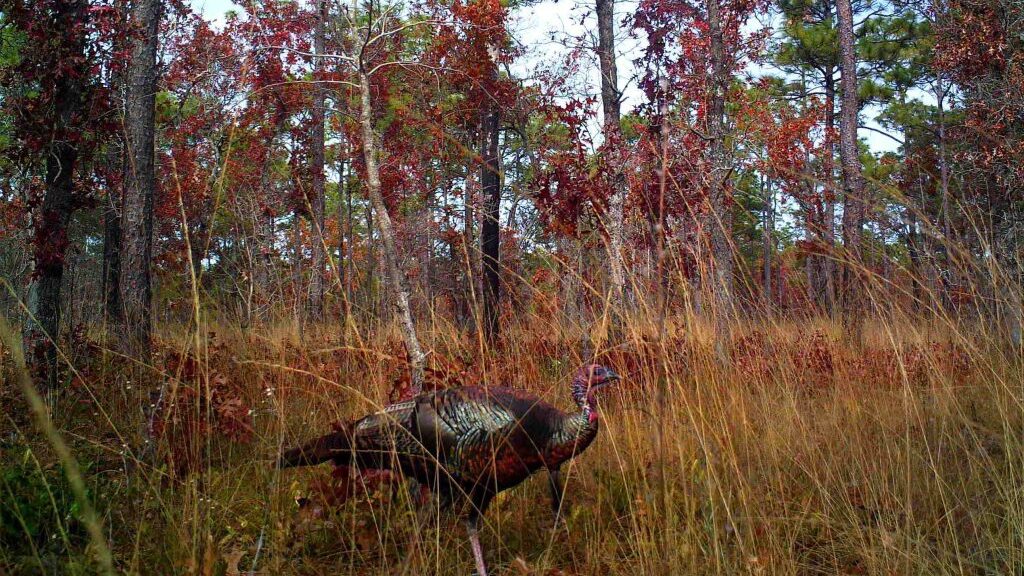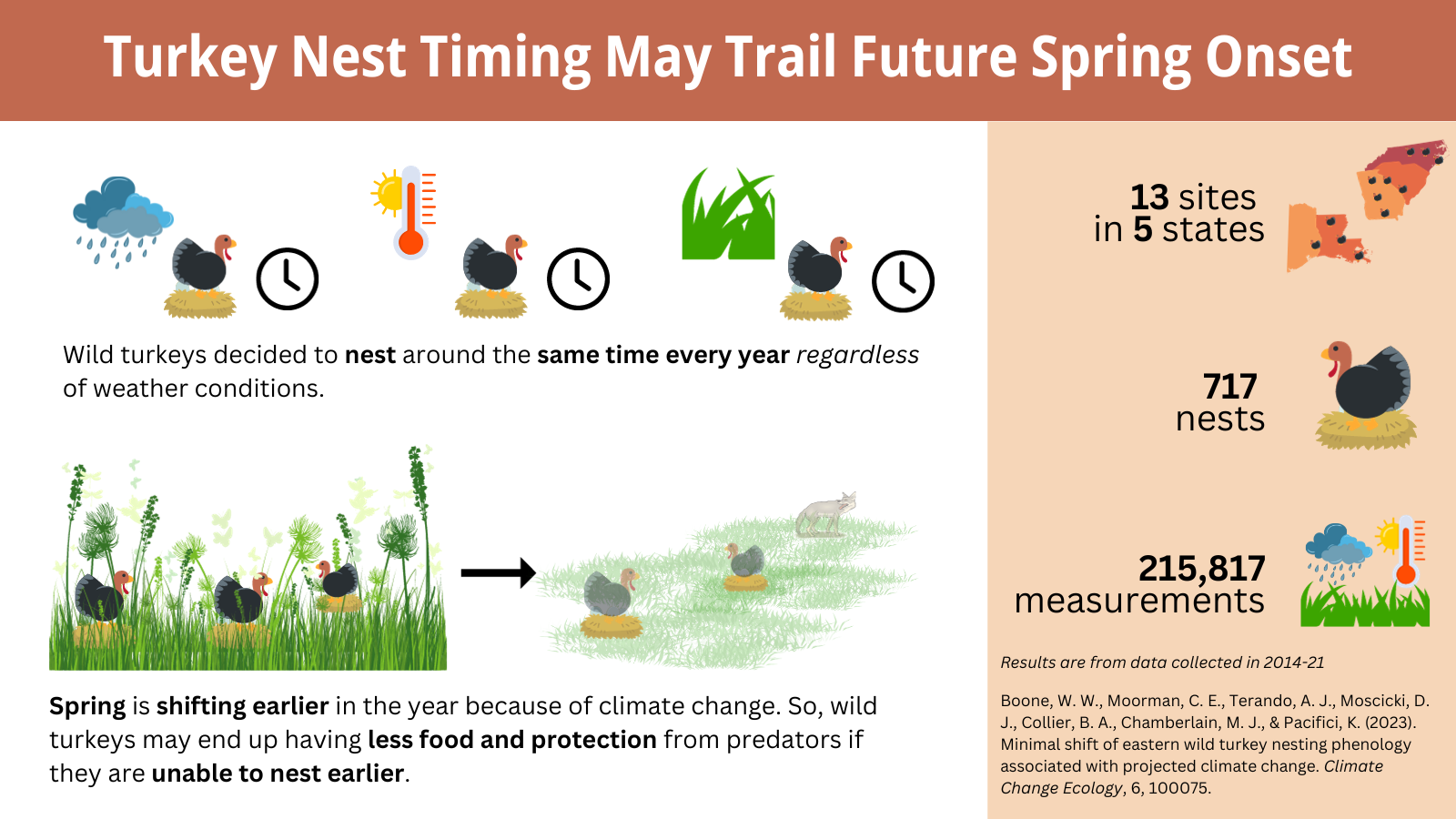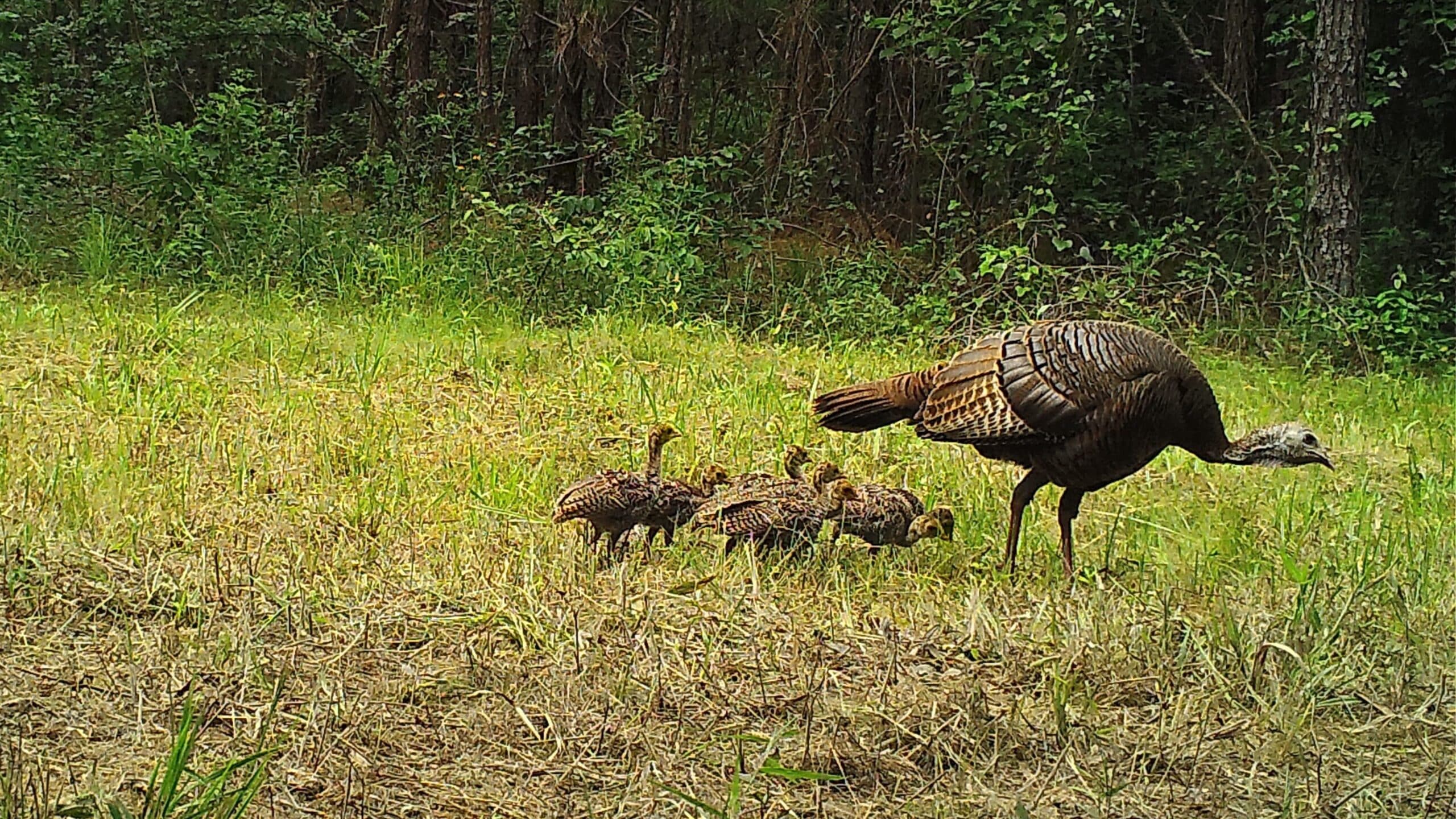Getting Ready for Turkey Day

With Thanksgiving just around the corner, what a better time than now to share all of the recent wild turkey research and resources funded by the Southeast CASC!
Minimal Shift of Eastern Wild Turkey Nesting Phenology Associated with Projected Climate Change

Eastern wild turkeys (Meleagris gallopavo silvestris) in five southern U.S. states are unlikely to make meaningful changes in the timing of when they begin nesting, even under significant future climate change. As a result, these wild turkeys could be vulnerable to shifts in climate, which could threaten the availability of their food sources, the amount of vegetation cover available to protect them from predators, and other factors.This publication, was recently published in the journal, Climate Change Ecology authored by SE CASC Project PI Wesley Boone. Faculty Affiliates Krishna Pacifici and Christopher Moorman along with Research Ecologist Adam Terando are co-authors to the article.
Assessing the Climate Vulnerability of Wild Turkeys Across the Southeastern U.S.

In the face of ongoing climate change and the projected future weather extremes for the Southeast, understanding the effects of climate and hunter harvest on wild turkeys will help managers adjusting timing of hunting seasons. Short-term weather events, longer-term weather shifts, and extreme weather events are assessed to determine relative importance on the variation in timing of nest initiation and the survival of nests across the Southeast region and for over a decade. This project is led by Krishna Pacifici at North Carolina State University.
Climate Change & Eastern Wild Turkey Reproduction
This seminar was jointly hosted with the Southeast Conservation Adaptation Strategy (SECAS) on July 21, 2022. In this seminar, Wesley Boone discussed his research into the implications of climate change for the economically and culturally important eastern wild turkey. Learn more.
- Categories:
